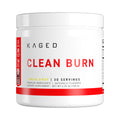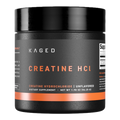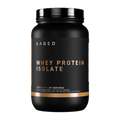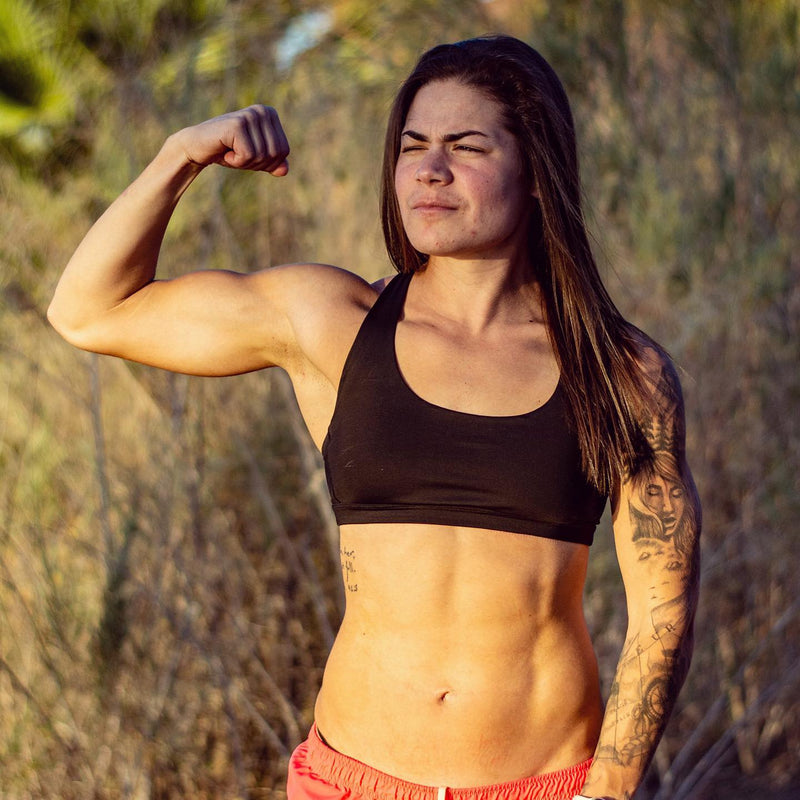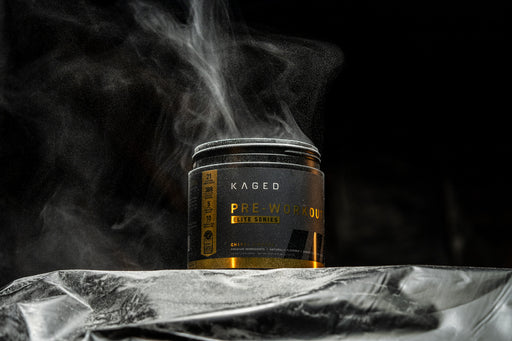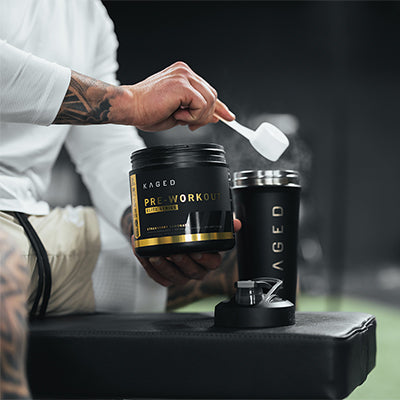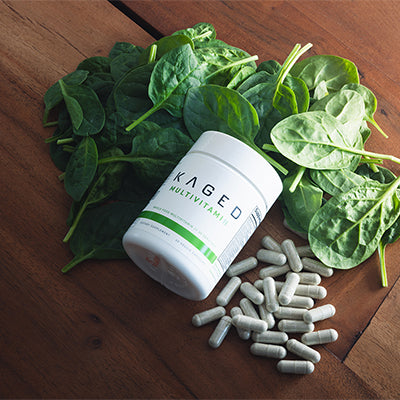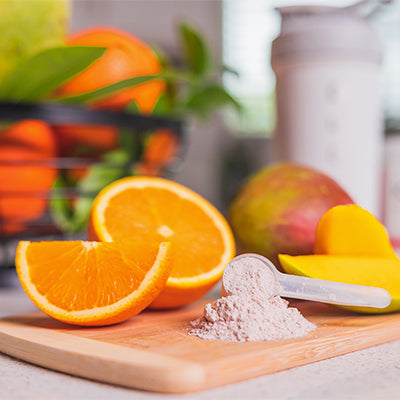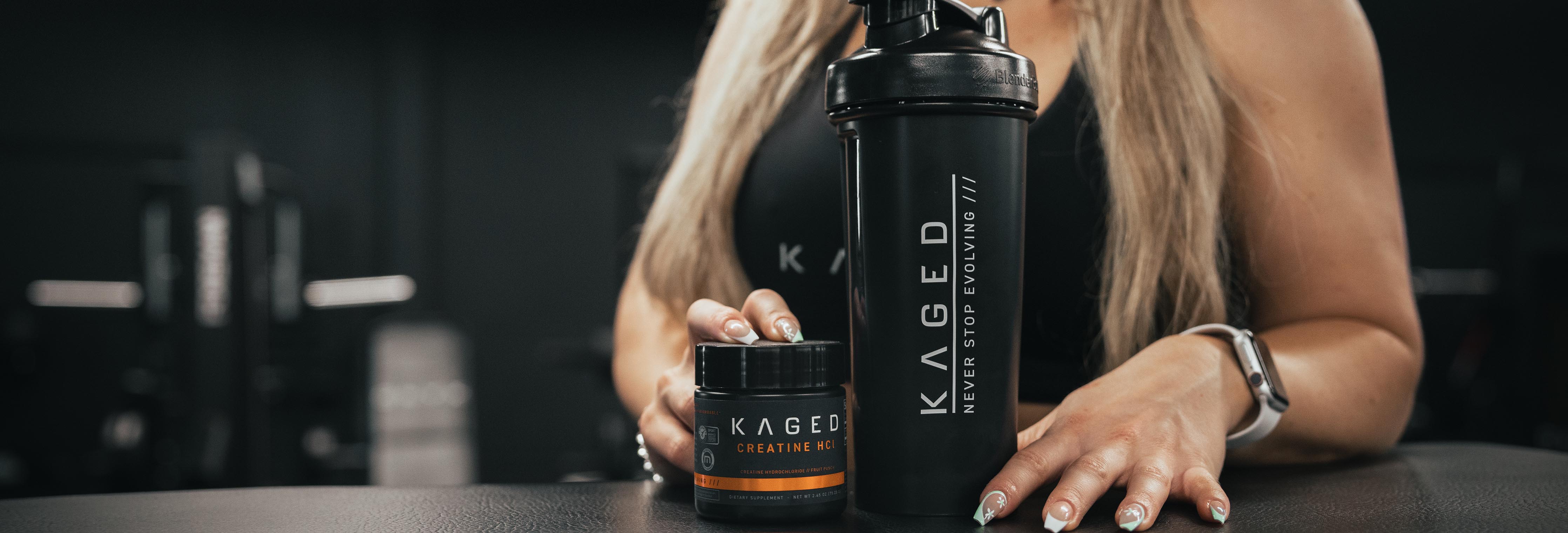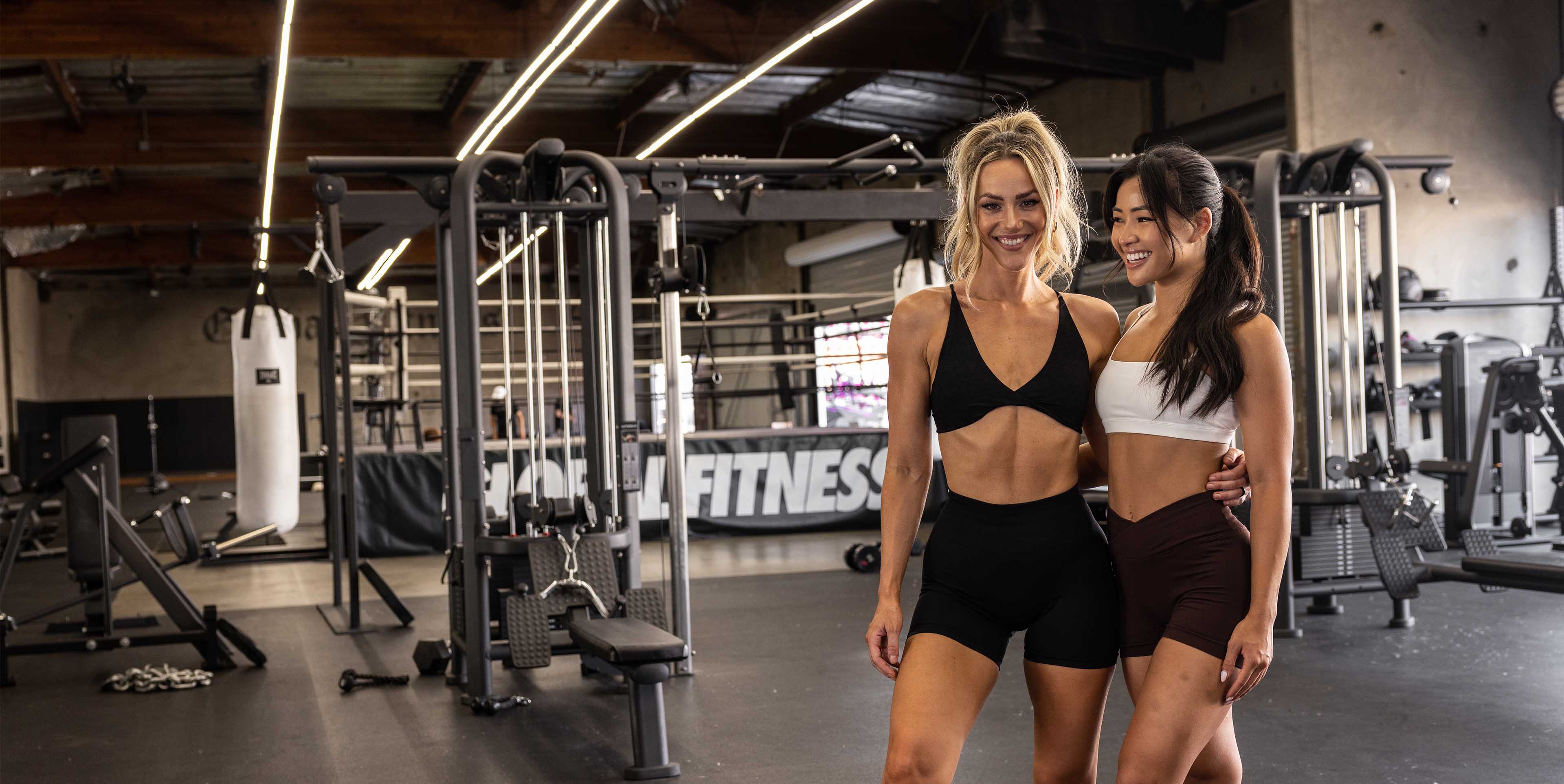If you know anything about supplements, you’ve probably heard about creatine. It’s one of the most popular, well-researched, and effective supplements in existence.
While its origins began in the weight room, it expanded to all types of athletes thanks to its ability to support strength and exercise performance.
A 2018 investigation of creatine in Sports Health traced its explosion into the mainstream beginning after the 1992 summer Olympics in Barcelona. In the 30 years since, its popularity has expanded from elite athletes to beginners, as more and more research validates its effectiveness and safety.
What Is Creatine?
Creatine is an amino acid our bodies naturally produce and is primarily found within our muscle cells. It’s made from a combination of three other amino acids: arginine, glycine, and methionine.

What Does Creatine Do?
Its main role is to facilitate energy production during high-intensity workouts. Creatine helps restore adenosine triphosphate (ATP) levels, our cells' primary energy source. This in turn provides an array of benefits, especially during strenuous anaerobic activities like lifting weights and sprinting.
Having more creatine in your muscles allows for increased ATP production during workouts. This is the core mechanism behind its many benefits.
What Are the Benefits of Creatine?
More recently, creatine has been explored for its role in supporting cognitive function and other brain-related benefits. However, the most solid, proven claims relate to athletic performance.
Supporting Muscle Growth*
Creatine's role in muscle growth is multifaceted.
Supplementing with creatine typically will increase the water content in muscle cells. This may reduce muscle protein breakdown by facilitating muscle protein synthesis.
Second, since it gives your muscles more energy, via increasing ATP, you can have more intensity workouts. Indirectly, this can support muscle growth.
Third, creatine may stimulate cellular pathways and hormonal responses, such as increasing levels of insulin-like growth factor 1 (IGF-1), leading to new muscle development, as noted in this 2008 randomized controlled trial.
Increase Strength*
By helping produce more ATP, creatine may help you lift heavier or perform high-intensity exercises for longer periods, contributing to an increase in overall strength.
Improve Between-Set Recovery*
Another strong claim backed by ample evidence is creatine’s ability to improve your recovery in-between sets. Again, it acts on a similar mechanism. By increasing the regeneration of ATP during high-intensity exercise, you can maintain your performance set after set.
Can Beginners Take Creatine?
The short and simple answer is yes.
Despite the fears often pushed onto creatine, if you’re a beginner can still get the benefits of creatine, and they’ll support you as you start your journey.
In fact, creatine is an excellent supplement for beginners
The fears about creatine are largely unfounded, and unsubstantiated by research. In fact, creatine supplementation at the recommended doses has proven to be safe time and time again. This is strengthened by decades and decades of research affirming its safety.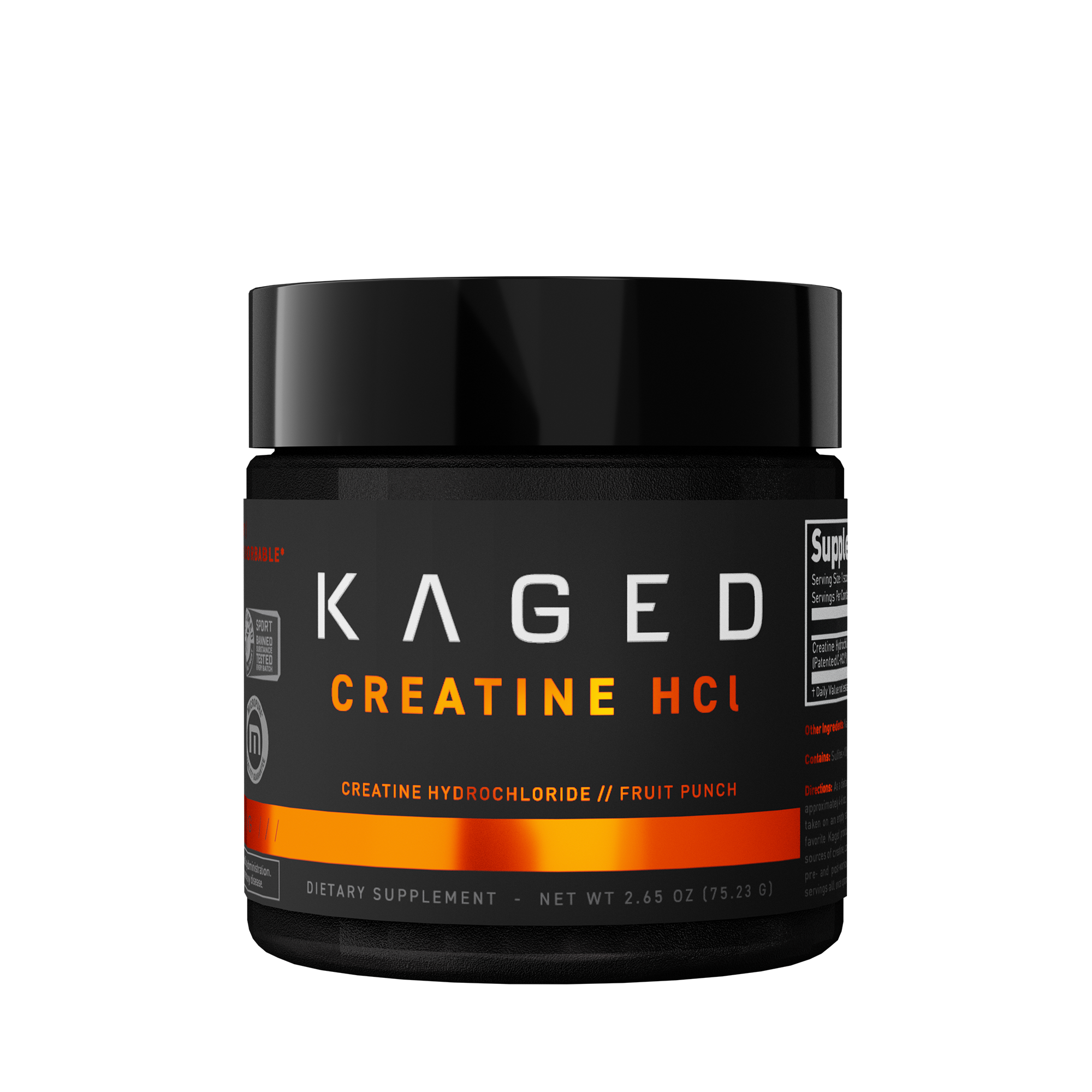
SHOP CREATINE
Should Beginners Use a Loading Phase With Creatine?
There’s no correct answer for this. The topic of the creatine 'loading phase' often sparks debate in fitness circles.
A loading phase is when you take a high dose of creatine (usually around 20 grams per day) for a brief period, typically 5-7 days, before reducing the dose to a maintenance level of around 3-5 grams per day.
The idea behind this strategy is to quickly saturate the muscle stores with creatine, allowing you to experience its benefits sooner.
However, it’s not a necessary step for beginners, or anyone.
If you take the loading phase approach, your muscles will achieve creatine saturation faster. So, if you're looking for quick benefits in terms of strength and performance, a loading phase might be worth considering.
However, you’ll get the same saturation levels with a lower, steady dose of creatine (3-5 grams) over a longer period (approximately 3-4 weeks) without loading.
For beginners, there are other reasons to not do a loading phase. 20g of creatine is a lot for your stomach, so you may get some GI distress. It’s also typically suggested to take this with juice to increase absorption, which equates to a lot of extra sugar in your diet. Finally, it’s just a hassle to take that much creatine every day. All of these may make it an unappealing option for beginners.
In short, it’s up to you.
How Should Beginners Take Creatine?
One common mistake beginners make with creatine, and with supplements in general, is they don’t know how to take it.
We make this easy with our creatine products by offering capsule, flavored, and unflavored options.
Option #1: Capsules
Capsules are often a convenient option. Our Creatine HCl capsules have 750mg per capsule. For the optimal dose, you’ll have to take around 4 capsules daily. We also have Creatine Monohydrate Elite in capsule form.

Option #2: Flavored Powder
We have Creatine HCl powder in lemon-lime and fruit punch flavors. This is a delicious way to help you get in your creatine. It’s great as an intra-workout, pre-workout, or even post-workout supplement.
Option #3: Unflavored Powder as Part of a Stack
Here’s where beginners mess up.
They buy unflavored powder and mix it in water alone. While creatine doesn’t have a strong taste, it’s still not very pleasant to drink on its own. Instead, mix unflavored powder in a pre-workout or intra-workout drink. Another great option is to put it in your post-workout smoothie.
We dive into this more in this article on creatine powder vs pills.
When Is the Best Time to Take Creatine?
As we discuss in this Instagram post, what’s important about creatine isn’t when you take it, it’s that you take it. Especially for beginners, we suggest taking it whenever works best for you. That could be your morning smoothie, in your pre-workout stack, or post-workout shake.
The research on creatine timing is mixed. Some studies have found additional benefits post workout, however, others studies have found no additional benefit.

How Long Does Creatine Take to Work?
Another thing beginners can get impatient with is how long creatine takes to work. Unlike a pre-workout, you won’t feel the performance-improving effects within 30 minutes.
If you use a loading phase, you’ll start to get the benefits within a week.
For those who opt for a lower, steady dosage (around 3-5 grams per day), it might take approximately 3-4 weeks to achieve similar creatine saturation levels in the muscles and observe notable performance and strength gains.
In short, then it’s 1-4 weeks, and depends on the dose and if you do a loading phase or not.
It will also vary based on your personal metabolism. It’s a supplement that works best with consistent usage.
What’s The Best Form of Creatine for Beginners?
While there are pros and cons to many forms, at the end of the day when it comes to benefits of creatine, you’ll get them from most forms. The two most popular are creatine monohydrate and creatine hydrochloride (creatine HCl.)
The original, classic form of creatine is creatine monohydrate. It has the most research behind it, and you will see the benefits of creatine from it.
Creatine HCl has a few advantages that make it a great choice for beginners.
First, it mixes easily. It’s more soluble than creatine monohydrate, so this means it’s easy to add in smoothies, use as a base for any stack, or drink on its own (but choose a flavored option.)
- No chalky texture
- No creatine stuck on the bottom
- Less GI distress*
- No bloating*
Second, Creatine HCl comes in flavored powdered. One of the common complaints among beginners taking creatine is it tastes bad. And unflavored creatine does taste bad, which is why the common recommendation is to mix it in juice or an electrolyte drink.
With our Creatine HCl, you can get it in a fruit punch or lemon lime drink, both of which have less than 1g of sugar. It can be an easier way to get in your creatine.
For more on this form of creatine, read this article on the benefits of creatine HCl.

SHOP CREATINE
Best Practices for Beginners Using Creatine
When you start using creatine, here are some key points to remember.
Stay Hydrated, Because You’ll Retain Water
Creatine encourages water retention in your muscle cells. This means you’ll have to increase your water intake to support this process. Of course, how much water you need varies. As a good rule of thumb, drink an extra 16 ounces of water per day as a starting point.
You may also benefit from taking electrolytes, which are essential for hundreds of bodily functions. You can read about the importance of electrolytes here.
Don’t Be Concerned About Sudden Weight Gain
Relatedly, since your body will retain water, when you start taking creatine your weight will go up. However, this is just water weight, neither fat nor muscle. It’s nothing to worry about as long as you stay hydrated.
Creatine Won’t Do the Work For You
A March 2022 review in Nutrients investigated dozens of studies on creatine for muscle growth. They showed across the board that participants got better results with a few factors. Unsurprisingly, one of the factors is that they had to put in the work. This is unsurprising, but underscores that creatine alone is not enough. Supplements will not do the work for you.
If you want to increase your strength, build muscle, or improve your performance, your training in the gym, your whole-food nutrition, and your sleep are the biggest factors.
FAQ
Is Creatine a Steroid?
Despite some common misconceptions, creatine is not a steroid. It's a naturally occurring compound that our bodies produce, and it's also found in various foods.
Is Creatine Bad For Your Kidneys?
Another common concern with creatine is its potential impact on kidney health. This is largely due to the fact that creatine is metabolized into a substance called creatinine, which is used as a marker for kidney function.
However, most scientific evidence to date suggests that creatine supplementation does not harm the kidneys in healthy individuals, like this 2013 long-term study.
Creatine is safe when used responsibly and by healthy individuals, but if you have specific health concerns, like a pre-existing kidney condition, then talk to your healthcare provider.
Is Creatine for Men and Women?
Many women who are new to training are concerned with getting “too bulky.” However, in reality, training hard and eating right will help you get the best physique of your life. Likewise, creatine won’t make you bulky. It will help your performance in the gym.

Will I Gain Weight When I Start Taking Creatine?
Creatine encourages water retention, so it’s common to gain weight. However, this is water weight, so it’s nothing to be concerned about as long as you’re focusing on hydration.
Should Beginners Take Creatine Pre-Workout?
We address this question in this article on taking creatine in pre-workout.
Is Creatine Monohydrate or Creatine HCl The Best Creatine for Beginners?
Both creatine monohydrate and creatine HCl have shown to be effective. Creatine HCl mixes better, which makes it a great choice for beginners. However, monohydrate is also effective and usually comes at a lower price point.
For more on this, check out this article on creatine monohydrate vs HCl.
*Disclaimer: These statements have not been evaluated by the FDA. This product is not intended to diagnose, treat, cure, or prevent any disease.

